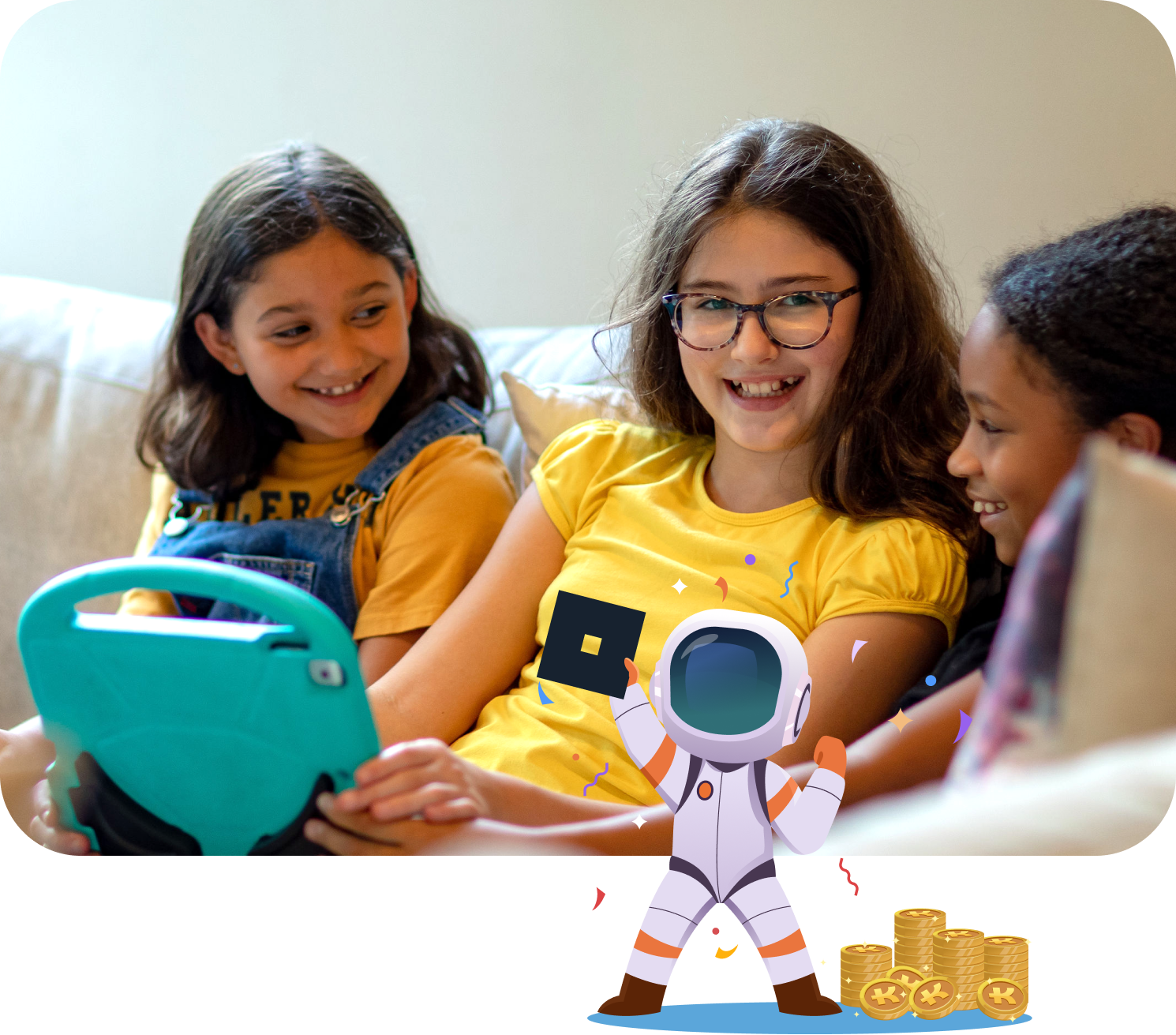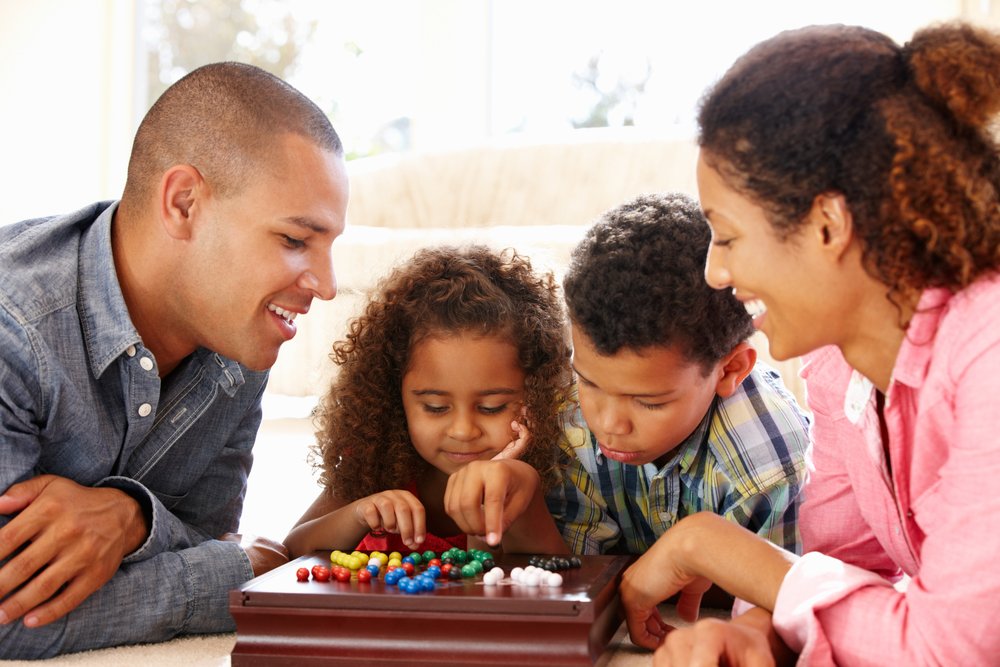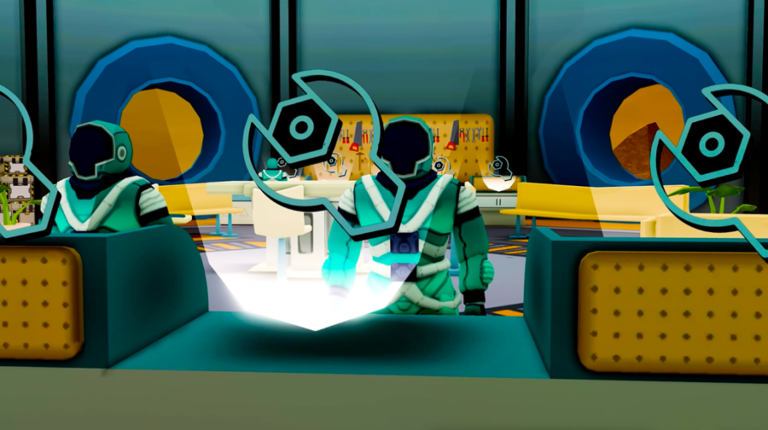Increase the Challenge and Learning in Roblox with Kinjo!
How Kinjo’s flame ratings translate into better gaming choices (without losing the fun!)
Does Roblox seem like a giant time-waster?
That largely depends on who you ask. But as technology expands at a rapid pace, Kinjo believes Roblox can help kids gain the life skills they need to succeed in today’s world. Yep, whether they’re playing obbys, tycoon games, or pretending to be a bird in a virtual world, they’re learning as they play.
Do you have trouble finding any value in Roblox? That’s where Kinjo comes in. Using our game complexity ratings (flame levels), we can help you measure the challenge your child is experiencing while gaming. And when they use Kinjo’s app, we can encourage them to choose games that help them learn and grow.
How does this work? And what exactly is Kinjo looking for when we rate and assign flames to games? It’s time to dig in and discover how Kinjo brings more learning to Roblox!
What is Kinjo’s Game Complexity Rating?
The Kinjo Game Complexity Rating is the behind-the-scenes number used to assign a reviewed game’s “flame level”.

When your child plays Roblox with Kinjo’s app, each recommended game comes with a corresponding flame rating. More flames = more complicated games = more challenge and learning opportunities. And the more time your child spends in the higher flame games, the more points they can earn.
How is a game’s flame rating determined?
Well, that’s classified. Just kidding!
A game’s flame assignment is a bit complicated to break down, but we’re going to do our best to explain the process behind Kinjo’s unique, game-rating algorithm — step by step.
- Each game is sorted.
Roblox has millions of games across many different genres. And it’s pretty darn tricky to compare a tycoon game with a sports game. So before doing anything else, we make sure a game is properly sorted. You can get a brief overview of the different game types in this article. - Kinjo expert reviewers answer 100+ questions about the game’s mechanics.
How does your child interact with each game? This question is broken down by our expert game reviewers — looking at everything from resource allocation to dodging flying objects. - Each game’s mechanics are compared to others in its genre.
Since most games in the same genre have similar gameplay, we dig into the details to determine which ones require more critical thinking and practice to play and eventually, master. - A flame rating is assigned.
If a game is straightforward with little challenge, it’s given fewer flames. Games that require more strategic thinking and planning (and take more time to master) are considered more challenging and are rated higher.And if a game is completely lacking in challenge and learning (we’re sure you’ve seen a few of these), then it’s not included in the Kinjo app. Zero flame games are not featured or recommended — and that means less time wasted.
Real-life examples of flame ratings
We broke down the process above, but what does this look like in real life (well, Roblox real life anyway)?
Let’s compare two tycoon-style games — Carnival Tycoon (🔥) and Farming and Friends (🔥🔥🔥🔥). Like all tycoon games, these give your child a chance to build a business and flex their entrepreneurial muscles. Gameplay involves making choices to bring in the maximum amount of revenue. Then they choose how to reinvest that revenue so their business continues to grow.
But in these two games, the difference in the number of choices your child makes is huge.
In Carnival Tycoon, your child is tasked with building the ultimate boardwalk carnival! They’re creating food vendors, game stalls, and rides. And they get to play and ride on almost everything they build — which equals lots of fun.

But the choices they make are only about which stall to build next (out of three provided options). Certain ones are suggested, but no matter which one they choose, they’ll continue to earn money. The lack of consequences and lack of choice keeps this fun experience a 1-flame game.
But when you look at Farming and Friends, you can immediately see the difference in complexity. In this game, your child is creating their very own farm — complete with animals, crops, and all the buildings needed to succeed and grow. And the choices they make directly affect their farm’s outcome.

Unlike Carnival Tycoon, Farming and Friends has several different ways for your child to earn money — including selling products, completing tasks, and automating manufacturing. And to grow, they have to decide where to invest their time and game money. This requires players to think strategically, prioritize tasks, and efficiently manage resources. That’s a lot of real-life learning being practiced in one Roblox game!
To wrap it up — games that offer more choice have more complexity and more advanced game mechanics. By removing choice, exploration, and failure, Carnival Tycoon also diminished its complexity. So while it’s a fun introduction to tycoon games, there aren’t as many learning takeaways as Farming and Friends.
Should you always encourage your child to choose the most challenging games?
This seems like an easy question to answer. Since 5-flame games are more challenging, then obviously you want your child to play these games more often — right? But this isn’t always true.
We’re constantly working to refine our flame rating algorithm. But in its current state, the complexity of a game is rated objectively — without considering a gamer’s prior level of gameplay and experience.
If your teen is an expert gamer with their own successful YouTube channel, then a 3-flame game is going to be simple for them to master. And you’ll find them naturally gravitating to the more complex games (because gamers crave challenge).
But if your 7-year-old is playing Roblox for the first time, a 5-flame game might be discouraging. New players still have a lot to learn about game mechanics. You’ll likely find this child working towards mastering the basics with obstacle course-style games. And while these may seem pretty straightforward and simple from a critical thinking perspective, this child is still learning a ton as they play.
So instead of encouraging your child to play only 5-flame games, take a closer look at their gameplay.
- Do they play a variety of games throughout the day?
- How much time do they spend in lower flame games vs higher flame games?
- Are they moving up in flames as weeks go by?
When you notice them incrementally increasing their gameplay challenge, then you know they’re on a great track for learning.
But doesn’t fewer flames mean less learning?
Not necessarily. Every reviewed and rated game (games that have been assigned flames) has learning built in. Granted, some learning is easier to identify than others. But all of Kinjo’s recommended games include academic and/or life skills practice.
Visit our blog to discover just how much your child can learn from video games. And stay tuned as we continue to update our rating systems to incorporate even more life and educational skills practiced inside of Roblox games.
How Kinjo rewards better gaming choices
Gaming naturally includes a great mix of intrinsic and extrinsic motivating factors. When your child is playing a game they enjoy, they want to become really good at it. There are challenges built in for them to complete. And when they achieve their gaming goals, they feel good.
And of course, there are also games that reward your child for playing. They get coins or trinkets just for spending time in the game. Or cool stuff for coming back the next day.
Kinjo uses these same systems to direct your child to the best Roblox games for learning.
By recommending the best games on Roblox, your child is getting to play some of the most well-made, entertaining games on the platform. Without spending hours in games that are less than stellar.

And, the more time they spend in recommended games, the more Kinjo Coins they can earn. And higher challenge = higher flames = more coins. This builds a positive habit, giving them an extra little push toward those more challenging games — helping them build grit, resilience, and academic skills along the way.
Then, when your child earns enough Kinjo Coins, they can redeem them for rewards — including Robux! If you’re looking for your child to build positive habits that translate outside the gaming world, Kinjo can help.
Team up with Kinjo to Level Up Your Child’s Screen Time!
With so many games to choose from, Roblox can become a time vortex for your child. But when your child uses Kinjo, you can breathe knowing their online time is not going to waste.
Just download Kinjo – Play Smart and Earn on your child’s device to help them find their way to the best Roblox games for learning. Ones that will challenge them while they play and have fun. And soon you”ll be able to subscribe to our Weekly Parent Insight Email to watch their progress!








